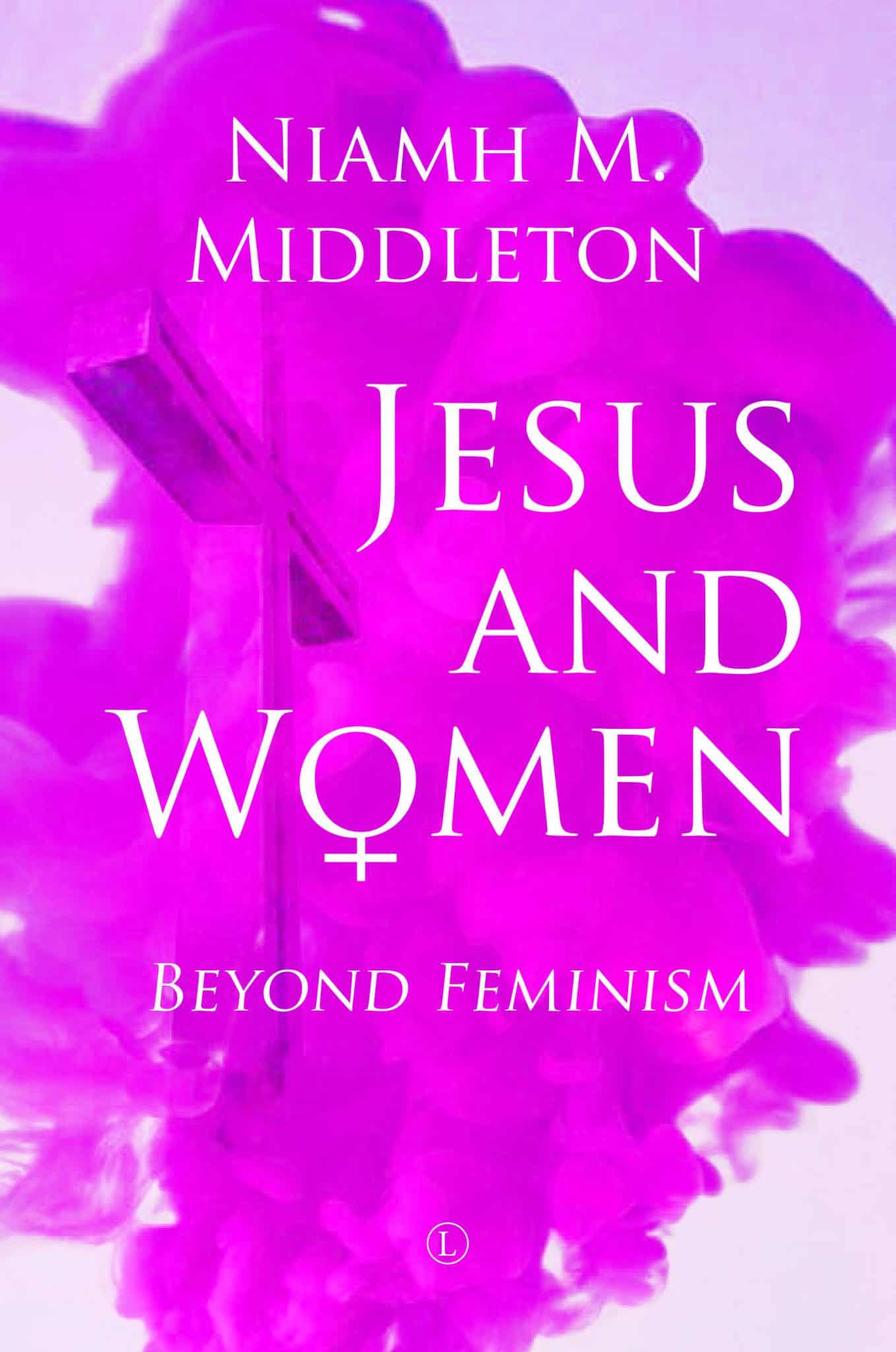Respected feminist theologian Dr Niamh M. Middleton says that since its foundation millennia ago, the Christian Church has strayed shamefully from an institution that respected the equality of men and women into a sexist organisation in league with the political sphere. In this exclusive article, Dr Middleton reveals how the Church continues to treat women as a second sex while society has moved forward to dismantle such gender-based discrimination, and how these barriers can only be brought crashing down by women themselves.
Despite the fact that women in the West have gained significant rights and freedoms in comparison to the women of other cultures, they are still treated as an intrinsically inferior sex in institutional Christianity, the Western world’s predominant religion.
Roman Catholicism, its largest denomination, permits women no authority of any kind. And although many denominations of the Reformed tradition now allow female ordination, it is still a very controversial issue and has caused schisms in several Protestant denominations.
Such a sexist situation is not in line with the Gospel texts, which are striking in their depiction of the revolutionary attitude of Jesus towards women. His treatment of them not only transcends all time and place but is so at odds with the ethos of the Roman Catholic tradition in which I was brought up that a major aim of my theological studies has been to find out why the Church’s treatment of women contrasts so strongly with that of its founder.
My research inspired me to write my new book, entitled Jesus and Women: Beyond Feminism. In the book I draw upon the relatively new disciplines of evolutionary biology and psychology to demonstrate how male domination and the perennial ‘battle of the sexes’ evolved.
THE COLLUSION OF RELIGION AND POLITICS
Despite the fact that women in the West have gained significant rights and freedoms in comparison to the women of other cultures, they are still treated as an intrinsically inferior sex in institutional Christianity, the Western world’s predominant religion.
Roman Catholicism, its largest denomination, permits women no authority of any kind. And although many denominations of the Reformed tradition now allow female ordination, it is still a very controversial issue and has caused schisms in several Protestant denominations.
Such a sexist situation is not in line with the Gospel texts, which are striking in their depiction of the revolutionary attitude of Jesus towards women. His treatment of them not only transcends all time and place but is so at odds with the ethos of the Roman Catholic tradition in which I was brought up that a major aim of my theological studies has been to find out why the Church’s treatment of women contrasts so strongly with that of its founder.
My research inspired me to write my new book, entitled Jesus and Women: Beyond Feminism. In the book I draw upon the relatively new disciplines of evolutionary biology and psychology to demonstrate how male domination and the perennial ‘battle of the sexes’ evolved.
THE COLLUSION OF RELIGION AND POLITICS
A highly significant insight into their evolution was facilitated by the discovery of the coevolution of religion and politics. As a result, religions have always supported patriarchal political power systems and have been used as a force for the social control of women.
The combination of male-controlled religion and politics has also enforced a sexual double standard that demands higher levels of sexual chastity from women than from men. The perfect example of this in practice is, perhaps, concerning Princess Diana. She had been expected to endure the infidelities of her husband, crown Prince Charles, while remaining loyal herself. After their marriage broke down, it was Princess Diana who was viewed by the establishment as the guilty party, not him. This hounding continued until her death, making her a true modern-day martyr to her sex.
The evolution of religion and politics in tandem with one another as a means of maintaining male domination indicates that, in order to get full participation in the public sphere, women will need to gain equal authority with men in their religions. The coevolution of religion and politics also necessitates an important distinction between religion as a phenomenon and the unique characteristics of individual religions while they are under the control of their founders.
JESUS’ REVOLUTIONARY ATTITUDE TOWARDS WOMEN
In Jesus and Women I demonstrate that our new knowledge of how religion evolved, together with what we have learned from political feminism, has highlighted the revolutionary attitude of Jesus towards women in a new way that enriches our understanding of his divinity and illuminates the way forward for women in both the Church and society.
I also show how the Old Testament provides a perfect foil for Jesus’ radically new treatment of women in the New Testament by comparing and contrasting exciting and dramatic stories of women in both biblical books.
Biblical-era Jewish culture was highly patriarchal as were the surrounding cultures of the day. The socio-political and religious spheres were totally male-dominated, with family life characterised by polygamy, concubines and the blatant institutionalisation of the double standard. Extramarital sex for men was tolerated as long as it didn’t infringe on the rights of other men. Women, on the other hand, could be sentenced to death for both fornication and adultery. The needs of single men for sex, and of married men who could not afford to be polygamous, led to the legalisation of prostitution. While the sexual activity of the ‘harlot’ was legal, such women were ostracised and treated as social outcasts. Prostitutes were not allowed to enter towns or cities during the day but only at night to proposition men.

As my research has revealed, Jesus socialised with those considered ‘other’ and sinners in Jewish society, including prostitutes. In a ground-breaking story in the Gospel of Luke (‘A Sinful Woman Forgiven’) it is made clear that his aim was to psychologically—as well as spiritually—heal them and that he perceived and treated them lovingly in the fullness of their dignity and personhood.
Also, in a culture in which women were not allowed to be educated—let alone be accepted as disciples by rabbis—or to leave their homes without being accompanied by a male relative, Rabbi Jesus accepted women as his disciples and allowed them to travel with him on his mission.
He interacted with and, when necessary, defended women he encountered who were considered pariahs or criminalised due to the double standard. He also made it clear to the Pharisees that the same sexual standards should be expected of males as of females. His radically unconventional treatment of women attracted serious hostility from the religious establishment, and at times even astonished his male disciples. When Jesus was arrested and condemned to be crucified, it was his female disciples who stood by him while his male disciples—including their leader, Peter—abandoned him due to fear for their safety.
Unsurprisingly, the risen Christ appeared first to Mary Magdalene, the leader of his female disciples, who had remained by his side throughout the crucifixion. He asked her to proclaim the good news of his resurrection to his other disciples, which made her the ‘Apostle to the Apostles’ and the Church’s first leader. His choice of her as the Church’s first, even if very brief, leader can be interpreted as a pre-emptive act against the future Christian Church, in which women will not only gain authority but can also be Church leaders.
The status of women in the early Church reflected their treatment by its founder; they shared the same ministries as those of men, including supervision of the Eucharist (also known as the ‘Holy Communion’). This situation only began to change as the Church grew and had to appease the male-dominated cultures of its converts. It then dramatically regressed into a sexist institution when Christianity became the state religion of the Roman Empire.
Unlike in other religions however, women weren’t segregated from men in public worship. Interestingly, it’s argued by Christian theologians that this equality of men and women in the sphere of public worship worked its way outwards into secular Christian societies and eventually resulted in women gaining secular rights and freedoms.
THE WAY FORWARD
In any case, the secular Christian world is now way ahead of institutional Christianity as regards female equality. In treating women as a second sex, institutional Christianity is not only greatly at odds with its founder, but is also causing an increasing decline in female practice which, taken in conjunction with the increasing growth in atheistic mindsets caused by scientific progress, is presenting the Church with a serious challenge.
It’s unlikely that the institutional Church will voluntarily grant women equal authority. Instead, Christian women will have to campaign together to regain their early Church status.
Regaining this will be an important step in their journey towards equal participation in the public sphere and towards the total elimination of the double standard both within the Church and wider society.
It will also provide the basis for a new promotion of Christianity grounded in the restoration of the harmony between the sexes and equal dominion of the world described in Genesis 1. It’s clear from the teaching and example of Jesus that its restoration was an important aim of his ministry. The new evangelisation will propel Christianity into a new, more spiritual phase that will not only renew female practice but can also contribute significantly to the reduction of atheistic mindsets.
It will also provide the best basis from which the female gifts of love, compassion, empathy and intuition can be used to impact in complementary, transformative fashion with male gifts in the public arena.
Jesus and Women: Beyond Feminism by Niamh M. Middleton is available now via Amazon UK, priced £20 in paperback, £14.46 as an eBook and £57.28 in hardcover. The book can also be purchased directly from The Lutterworth Press. For more information visit www.niamhmiddletonauthor.com.
JESUS AND WOMEN: BEYOND FEMINISM
Jesus and Women: Beyond Feminism by Dr Niamh M. Middleton is an incisive and intelligent theological manifesto calling on Christian women to rise up against the inherent sexism within the Church and reclaim their rightful place as the equals of men, as guided by the teachings of Jesus.

While modern secular society has gone to great lengths to banish institutional sexism, thanks largely to the fearless campaign of generations of women, the Christian Church seemingly remains as prejudiced and dismissive of its female members as it was a thousand years ago.
New book Jesus and Women: Beyond Feminism by Dr Niamh M. Middleton, then, could be considered as the vanguard of a long overdue revolt; the battle cry against the Church’s intolerable and inexcusable gender-based discrimination.
Written by respected feminist theologian Dr Niamh M. Middleton, it is an assiduously researched and intelligent consideration of sexual inequality within the Church that pushes back against the status quo with the full force of righteousness.
A call to arms for women, and an essential read for all Christians and feminists, it seeks to eviscerate the male-dominated policies that have no basis in the teachings of Jesus Christ and bring the Church in step with wider society as an institution based firmly upon gender inclusion.
Ambitious in scope, it dissects and analyses a large swathe of history from evolutionary biology and Darwin, through decades of feminism and right up to the #MeToo movement of 2017, where the treatment of women attained new global relevance and understanding, allowing society to look deeper at the imbalances in its structure.
Jesus and Women’s central premise is that Jesus was a pioneering feminist, embracing the fact that God gave Adam and Eve (and, by extension, men and women) joint dominion, as declared in Genesis.
Yet, in a withering attack, Dr Middleton demonstrates how the Church—backed by the monarchy, politics and wider societal institutions—has blatantly ignored Jesus’ teachings for centuries, and has instead allowed men to control the not-so-venerable body and set in place ‘norms’ which play to their advantage.
Now is the time, the author implores, for women to reclaim their church, and truly live a life in Christ. First off, it must be said that the book is very informative, and as well as being an essential read for all Christians it will appeal to anyone interested in religion and social relations, even if they consider themselves atheists or agnostics.

Examining matters with an expert eye, Dr Middleton provides example after example of the misogyny and double-standards that have been at play in the Christian Church, and shows how this all stems from the early Church’s appeasement of the Roman Empire which in, effect, made it into a political proxy for normalising and enforcing the social control of women.
This, the book explains, has led not only to centuries of discrimination and regressive views on women and their sexuality, but also—tellingly—a pronounced swing towards atheism in these more enlightened times.
Dr Middleton is also known for her pioneering work on the connection between religion and evolutionary biology and she calls upon this in exploring how it led men, through their competition for mates, to accrue land, wealth and power—with organised religion becoming a tool for those in control to acquire these.
In a darker parallel, it examines how the evolutionary desire of men not to raise someone else’s child (the ‘cuckold effect’), has led to the control and suppression of women through myriad means, such as draconian (and very much one-sided) adultery laws and FGM.
But the book is more than a well-reasoned deconstruction of discrimination; the author also uses it as a platform to provide a viable solution to all the problems outlined, considering how the Church should treat women if it is to be in accordance with the will of Jesus Christ.
In this highly passionate and well-argued section, the author—a former lecturer in theology, religious studies and philosophy of religion at Dublin City University—examines how, in the Gospel stories, Jesus encouraged female disciples, such as Mary Magdalene, to follow him, and did so at a time of wider female segregation and exclusion from public life.
Not only did Jesus defend women against attack, we learn, but he also put his own position in jeopardy by treating women in such a way, making it clear that he recognised women in the fullness of their personhood and dignity.
In further interesting analysis, the book proposes that Jesus’s unique manner of relating to women was grounded in his divine consciousness and agape (‘unconditional love’).
This, Dr Middleton submits, is now the path the Church must follow, and in an impassioned plea she stresses that while political feminism can tackle the symptoms of the perennial ‘battle of the sexes’, only a ‘revolution of grace’ led by a grassroots movement of female Christians can deliver a full restoration of the original harmony between the sexes.
Elsewhere, a whole chapter is devoted to Princess Diana, highlighting how she was demonised by church, monarchy and state, with the double standards that surrounded her (she had to be a virgin upon marriage, while Charles did not).
Dr Middleton urges readers to see her as a modern-day religious heroine and martyr to the discrimination that women have suffered by the church for too long.
Jesus and Women deserves applause, not only for its ambitious scope but also its pinpoint aim and precise delivery.
Just as 16th-century Martin Luther sought to bring an unruly Church back into the house of God with his Ninety-five Theses, Jesus and Women seeks to correct a grossly outdated male-dominated form of Christianity and bring into effect a fairer, more progressive—and kinder—Church that can truly be considered fit for the 21st century.
In summary, this book will transform Christians’ understanding of Jesus’ divinity, and will no doubt win the support of the wider public as well.

